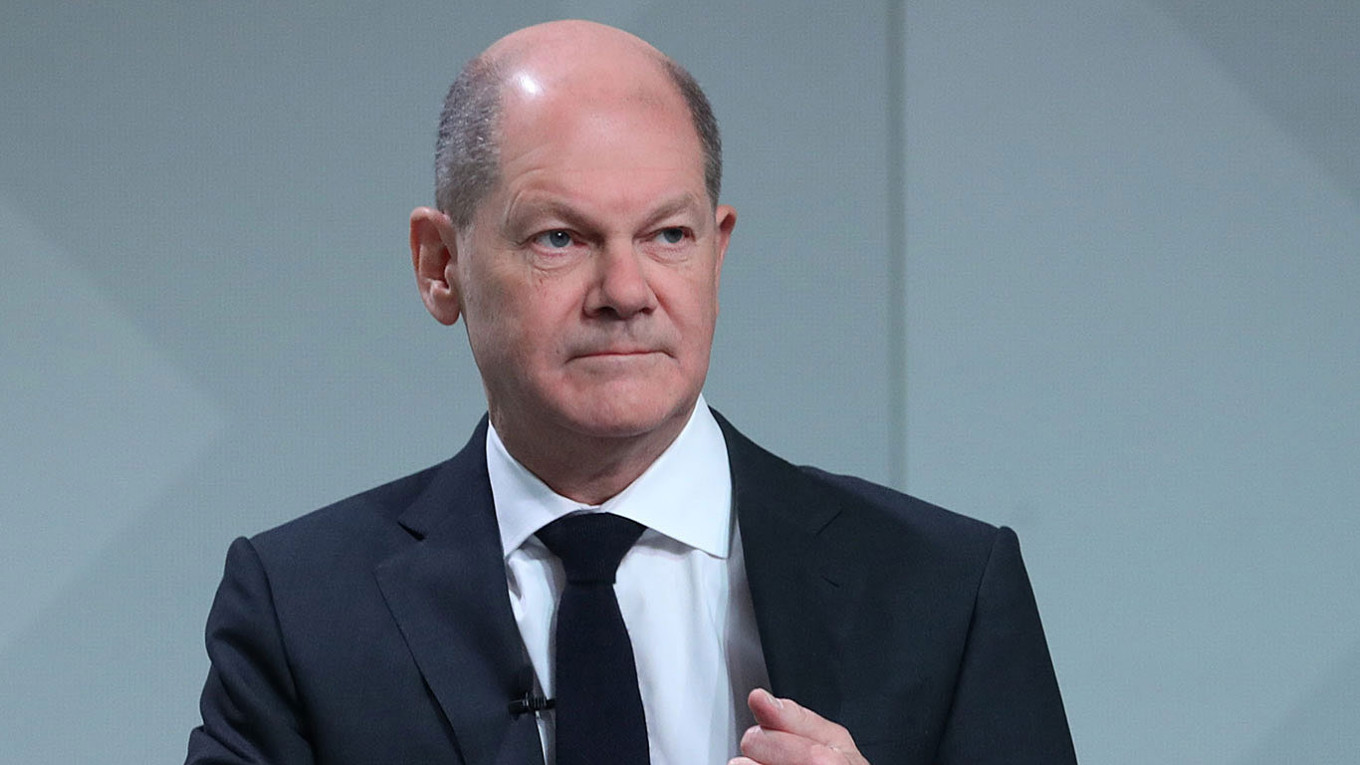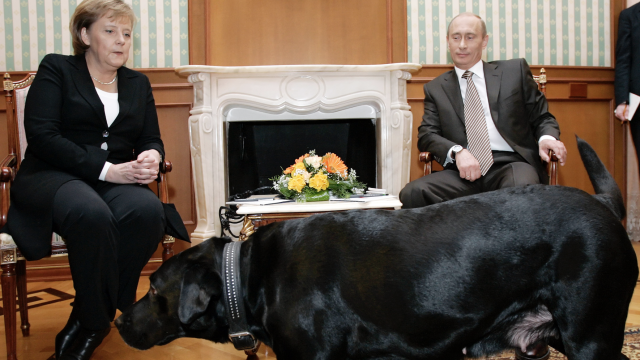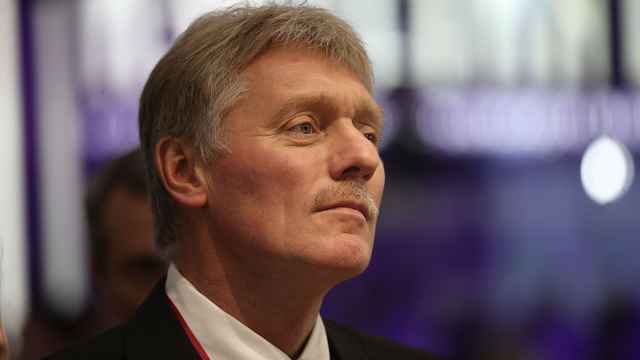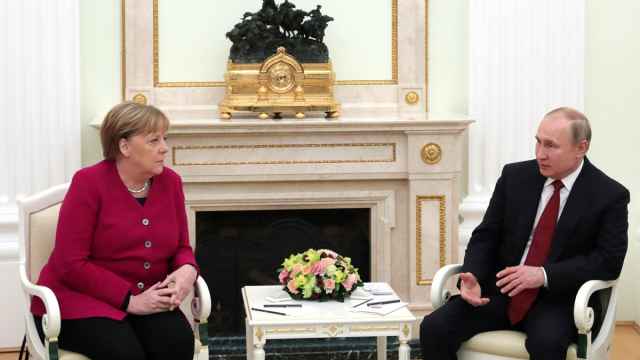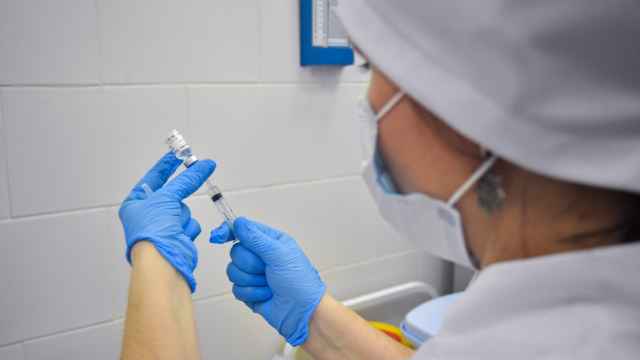Russian President Vladimir Putin said on Wednesday he wanted "constructive" ties with Germany's new leader Olaf Scholz and thanked the outgoing Chancellor Angela Merkel.
"I look forward to establishing constructive dialogue with you and joint work on pressing matters on the bilateral and international agenda," Putin said in a congratulatory telegram to Scholz, the Kremlin said.
Doing so "would undoubtedly meet the fundamental interests of Russians and Germans, and would contribute to the strengthening of stability and security at the regional and global levels," Putin added.
In a separate telegram to the 67-year-old Merkel, Putin thanked her for cooperation over the past 16 years and readiness for "mutually respectful dialogue," using the familiar "ty" form of address in his message rather than the formal "vy."
"We were constantly in contact and tried to find ways out of even the most difficult situations," Putin said. "We will of course continue our friendly interaction."
On Wednesday, the German parliament elected Scholz as chancellor as a new center-left-led coalition takes the wheel of Europe's top economy.
The incoming government has pledged a tougher line with authoritarian states such as Russia after the business-driven pragmatism of the Merkel years.
Despite their bitter differences, Merkel and Putin, who speak each other's languages, managed to keep talking throughout the outgoing German leader's years in office.
Merkel was a proponent of direct talks with Putin and her ambivalent stance on Russia also frequently alienated partners, particularly in eastern Europe.
She angered them especially with the controversial Nord Stream 2 gas pipeline set to carry Russian gas to Germany, which several eastern European countries believe will embolden Moscow at their expense.
Germany imports around 40% of its gas from Russia and is set to receive even more via Nord Stream 2, a project that has raised U.S. concerns, divided Europe and angered EU ally Ukraine.
A Message from The Moscow Times:
Dear readers,
We are facing unprecedented challenges. Russia's Prosecutor General's Office has designated The Moscow Times as an "undesirable" organization, criminalizing our work and putting our staff at risk of prosecution. This follows our earlier unjust labeling as a "foreign agent."
These actions are direct attempts to silence independent journalism in Russia. The authorities claim our work "discredits the decisions of the Russian leadership." We see things differently: we strive to provide accurate, unbiased reporting on Russia.
We, the journalists of The Moscow Times, refuse to be silenced. But to continue our work, we need your help.
Your support, no matter how small, makes a world of difference. If you can, please support us monthly starting from just $2. It's quick to set up, and every contribution makes a significant impact.
By supporting The Moscow Times, you're defending open, independent journalism in the face of repression. Thank you for standing with us.
Remind me later.


